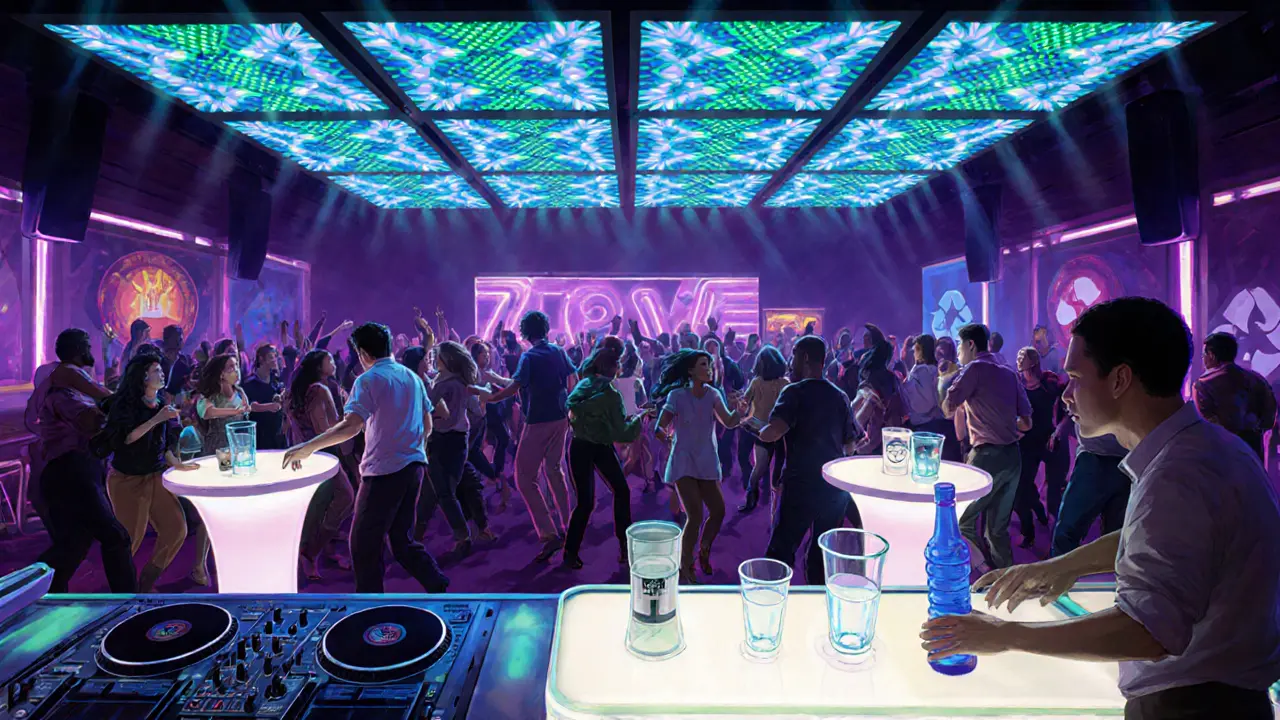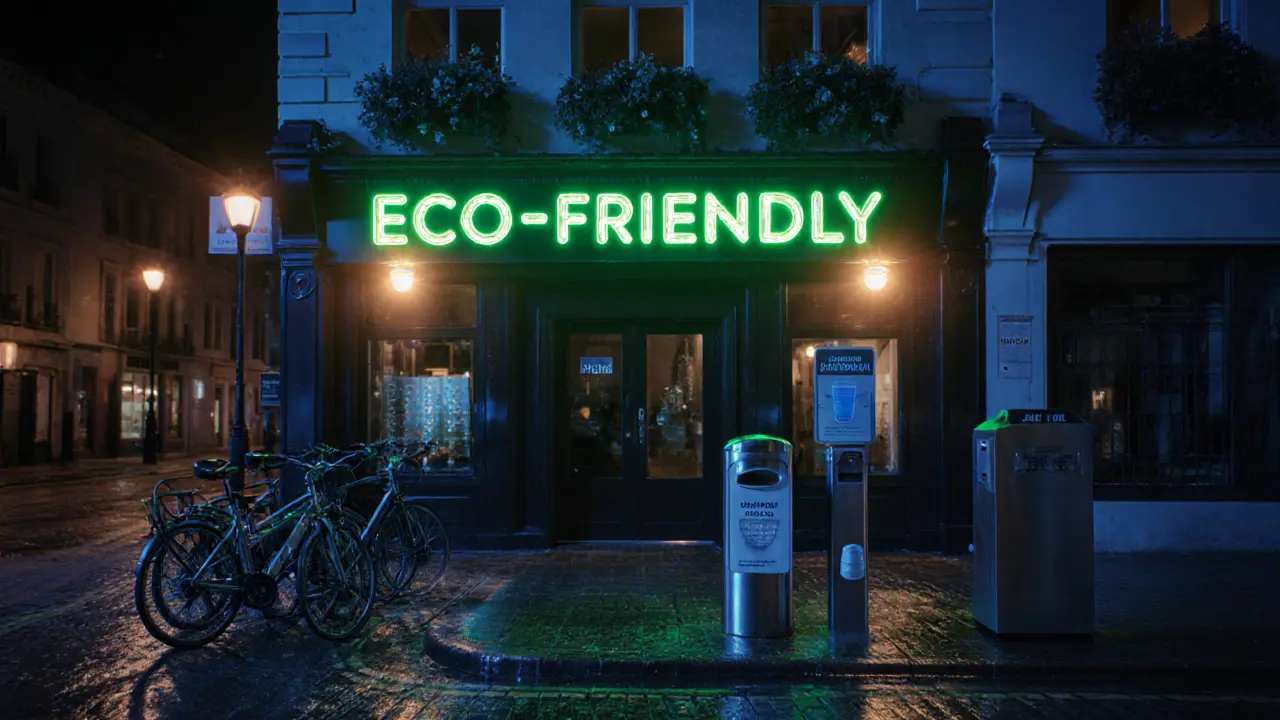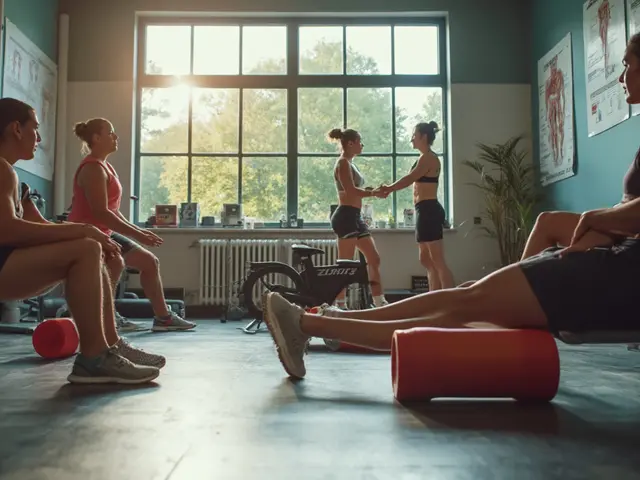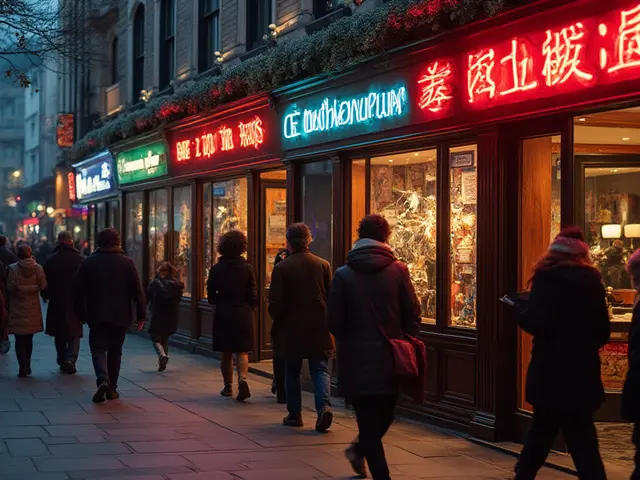In London, the rise of Eco-Friendly Dance Club is reshaping the night scene. These venues combine high‑energy music with sustainable practices like zero‑waste policies, renewable‑energy sourcing, and community‑focused outreach. If you love the thump of bass but also want to keep the planet smiling, you’re in the right place. This guide walks you through what makes a club truly green, which spots are leading the charge, and how you can enjoy a night out without a heavy carbon footprint.
Why Sustainability Matters on the Dancefloor
Britons are known for their love of a good night out, and London throws some of the biggest parties in Europe. Yet the city’s nightlife also generates a lot of waste-single‑use plastics, high electricity use, and frequent travel to and from venues. By choosing clubs that prioritize eco‑friendly measures, you help reduce landfill, cut emissions, and support a culture that values the environment as much as the beat.
Core Elements of an Eco‑Friendly Dance Club
- Energy Efficiency: Using LED lighting, motion‑sensor stage rigs, and renewable‑energy contracts (solar or wind) to lower electricity consumption.
- Zero‑Waste Policies: Eliminating single‑use plastics, offering refill stations for water, and partnering with local compost services for food waste.
- Reusable Drinkware: Providing washable cups or encouraging patrons to bring their own, often supported by a small deposit scheme.
- Transport Solutions: Offering discounted TfL (Transport for London) travelcards, bicycle parking, or shuttle services to reduce car journeys.
- Carbon Offsetting: Calculating the club’s footprint and investing in local tree‑planting or renewable projects to neutralise emissions.
- Local Sourcing: Serving drinks from nearby breweries, using seasonal menu items, and sourcing décor from UK artisans.
When a venue checks at least four of these boxes, you can confidently call it a sustainable spot.
London’s Leading Green Clubs
Here’s a quick look at four venues that have turned sustainability into a selling point.
| Club | Energy Source | Waste Policy | Drinkware | Transport Incentives |
|---|---|---|---|---|
| Fabric | 100% renewable electricity (green tariff) | Compostable cups, no single‑use plastic | Reusable glass tumblers (deposit) | Free night‑time TfL travelcard for ticket holders |
| The Chalk Club | Hybrid solar‑plus‑grid | Zero‑waste bar, in‑house recycling stations | Stainless‑steel bottles (refillable) | Bike‑rack and partnership with Santander Cycles |
| The Box | LED lighting with motion sensors | Plastic‑free cocktails, food waste donated to local charities | Paper‑less QR menus, encourages own cup | Discounted Uber‑Eats delivery to reduce car trips |
| Club Carnival | On‑site wind turbines supplementing grid | Reusable straw program, biodegradable glitter | Aluminum cans with deposit scheme | Shuttle from King’s Cross station on weekends |
Each of these clubs ticks the majority of the sustainability boxes listed above, showing that it’s possible to keep the music loud while keeping the carbon low.

How to Make Your Night Out Greener-Even If Your Club Isn’t Certified
- Plan your journey: Use the TfL Journey Planner to choose the most efficient route. Walking or cycling whenever possible slashes emissions dramatically.
- Bring a reusable bottle: Many London venues now have free water refill stations-just ask the bar staff.
- Skip single‑use plastics: Decline plastic straws and cups; most bars will gladly serve your own.
- Choose low‑impact drinks: Opt for local craft beers from breweries like Camden Town Brewery or London’s own Meantime. These have a smaller transport footprint than imported spirits.
- Offset your night: Apps like Offset Earth let you add a small donation to an official carbon‑offset project right from your phone.
- Support club initiatives: Join loyalty programs that reward eco‑friendly behavior, such as earning points for using refillable cups.
Even simple steps add up when thousands of party‑goers adopt them.
Local Partnerships Power the Green Shift
Many clubs collaborate with London‑based organisations to amplify impact. For example, Zero Waste is a nonprofit that helps venues set up composting and recycling infrastructures. Their work at Fabric reduced landfill waste by 45% in 2023. Similarly, Renewable Energy providers like Ovo Energy offer bespoke green tariffs for nightlife venues, allowing clubs to claim 100% renewable electricity without massive price hikes.
Upcoming Eco‑Events and Calendars
If you want to combine dancing with learning, keep an eye on events such as the annual Green Beats Festival at Queen Elizabeth Olympic Park. It showcases DJs who perform powered entirely by portable solar rigs. Another regular fixture is the Eco‑Night series at The Chalk Club, where talks on waste reduction happen between sets.
Common Pitfalls and How to Spot Greenwashing
Not every club that claims to be sustainable lives up to the hype. Watch out for these red flags:
- Vague claims: Statements like “we care about the planet” without specifics are often marketing fluff.
- Lack of third‑party verification: Look for certifications from bodies like London Green Business Charter or visible audit reports.
- Partial measures: A club might have LED lighting but still serve single‑use plastic bottles; true sustainability is holistic.
Doing a quick check on the club’s website or asking staff about their waste handling can save you from supporting superficial greenwash.
Quick Takeaways
- London’s nightlife is moving toward greener practices, with clubs like Fabric and The Chalk Club leading the way.
- Key sustainability factors include renewable energy, zero‑waste policies, reusable drinkware, and transport incentives.
- You can boost your own eco‑impact by using public transport, bringing reusable bottles, and choosing local drinks.
- Watch for genuine certifications and avoid greenwashing by asking for concrete evidence.
What makes a dance club truly eco‑friendly?
A truly eco‑friendly club combines renewable energy, comprehensive waste reduction, reusable drinkware, sustainable sourcing of food and drink, and encourages low‑impact transport for its patrons. Look for concrete policies, certifications, and transparent reporting.
Which London clubs have verified sustainability programs?
Fabric, The Chalk Club, The Box, and Club Carnival all publish detailed sustainability reports and have partnered with organisations like Zero Waste and Ovo Energy to certify their green initiatives.
How can I reduce waste when I’m at a club that doesn’t offer reusable cups?
Bring your own stainless‑steel or BPA‑free bottle and ask the bar staff for a water refill. Many venues are happy to accommodate if you ask politely. You can also order drinks in recyclable containers and recycle them yourself.
Are there any tax incentives for clubs that go green in London?
Yes. The UK government offers grants through the Green Business Programme, and clubs that improve energy efficiency can claim Enhanced Capital Allowances, reducing taxable profits.
What are the best ways to travel to a club sustainably?
Using the Tube, Overground, or bus services (TfL) is the most carbon‑efficient. For short hops, Santander Cycles (bike‑share) works well. If you drive, car‑share apps or electric vehicle charging stations at venues can help.
Can I offset the carbon footprint of my night out?
Absolutely. Services like Offset Earth or the Carbon Trust let you calculate emissions based on travel, energy use, and waste, then donate to certified projects such as UK reforestation or community solar farms.





